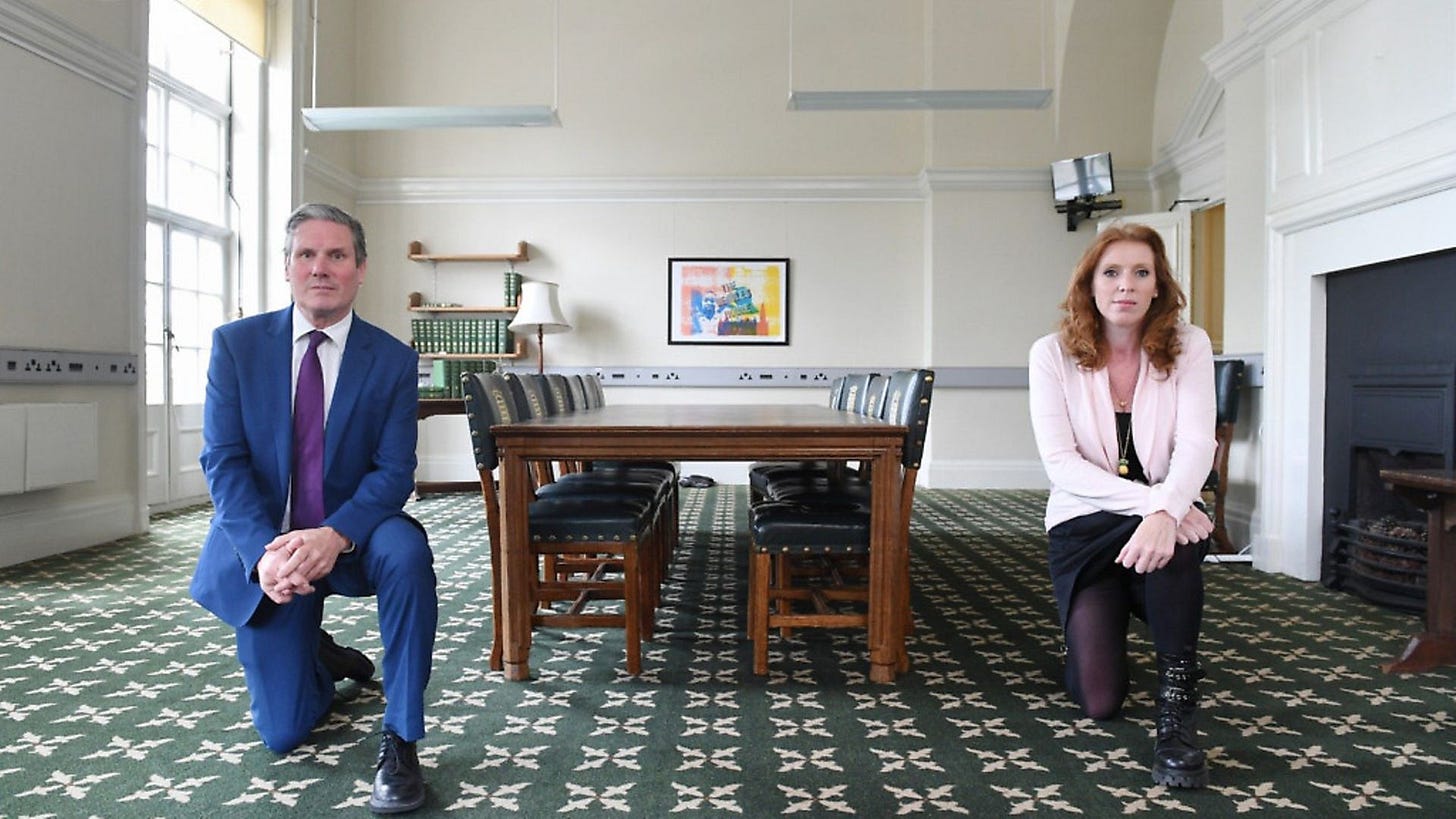
Trying to characterize the cultural atmosphere of the last five years, above all on social media, I arrive at ‘Being told to educate yourself by some of the most stupid people on the planet.’ Being told to say, ‘educate myself’ on Israel and Palestine by people whose knowledge of the region is founded largely on this infamous land grab chart, being told to be less racist by people who talk about an ‘essence of whiteness’, being offered an inaccurate account of historical events which I myself actually lived through. In all these cases, actually knowing a thing or two about the issue at stake – let alone having arrived at your own considered position – has proved an active impediment to easily carrying out what you were supposed to do, which is to parrot some reductive slogan (‘Defund the police!’ ‘From the river to the sea!’ ‘Black Lives Matter!’) and soak up the moral approval.
Meanwhile, hopefully, all the time you have yourself been getting more educated, so the distance between your understanding and the one you are being called upon to perform only gets wider and more annoying; you are deepening as the discourse grows more shallow. In as much as time allows, I think we have a responsibility to educate ourselves; not in the sense of being ‘dutybound to keep up on the latest minutiae’, much of which are always froth, but to the extent that given we are part of our society, the smarter we are, the more ably our societal debates can be rooted in something with a certain basic level of being informed.
You need to be tolerant, too, when a 21-year old is telling you that the Falklands War started because Thatcher was going to lose the 1983 election, as you’ve had more time to find things out. Ideas are particularly important in youth because of your absence of experience. Later in your life political stridency becomes more difficult to maintain; experience ferments you into multi-sidedness. You become more rounded by reading but also by going to more places, meeting more people, and finding yourself in more different situations. One of the chief roots of tacking to a political extreme is simply a lack of experience of this richness, allowing reality to be subjugated to the catchphrase.
Which is why the bizarre spectacle over the last decade has not been so-called ‘woke’ young people but their middle-aged enablers. Established white male academics fulminating against the evils of white men. Arts Council apparatchiks gushing other themselves to salute the comedy-free comedy of Hannah Gadsby. Middle managers Instagramming black squares and reading lists (how are those going, by the way?) on systemic racism. The scores of ageing Millennials who, seeing their youth winding to an end, embraced a kind of radical extremist social politics which was itself less complex and less tolerant than their own politics of a few years previous. Who, to be frank, volunteered to their own dumbing-down, not seemingly out of any ideological conviction but a desire to be seen to keep up with the cultural Joneses.
And that moment has now passed.
I have been very careful not to make this newsletter an ‘anti-woke’ project. I’ve written about a substantial range of subjects; natalism, Lana del Rey, failure and, repeatedly, men and their struggles. I always viewed wokeness as a moment in time, created by particular circumstances, and thought that a commentator hoisting their career to opposing that moment would be left permanently associated with it and even in a perverse sense starting to argue for its continuation. It also seems impossible to argue now that, in a world where Liz Truss is given a soft-soap interview on the TRIGGERnometry podcast, ‘anti-wokeness’ hasn't become primarily a political culture of the right. In the States, a lot of it seems to be allied to Trumpism. In fact wokeness wasn’t, at its core, political; the motivation of people affecting it was trying to stay trendy rather than trying to affect any genuine political change.
Nonetheless, it has always been clear in this newsletter that that kind of illiberal social justice politics is one I view with disdain – and unlike many of those who adopted it and put its various reductive prepositions forward as if they were uncontestable facts (comedy always punches down, does it? free speech must always come with consequences, should it? people of colour can’t be racist, can they?) I had my own existing, centre-left and materialist, politics which let me knew that I knew what I believed and it wasn’t that. I was already political and I was already anti-racist. A lot of the time discussions around the matter seemed to me strange clashes between people being consistent in their politics and people embracing a fad.
Still, it’s important to note that my disdain for this kind of politics has always been personal. Over the 2010s, I encountered more and more examples of people seeming to behave IRL as if they were on the internet; an old friend who told me that they no longer watched films by white men; a DJ who told me in the middle of a show my comedy character was the creation of a privileged white man; the feedback I received on my plays which became more obviously slanted along ideological lines. And all those incidents made me feel more determined to express my disagreement to this simplistic cultural approach.



